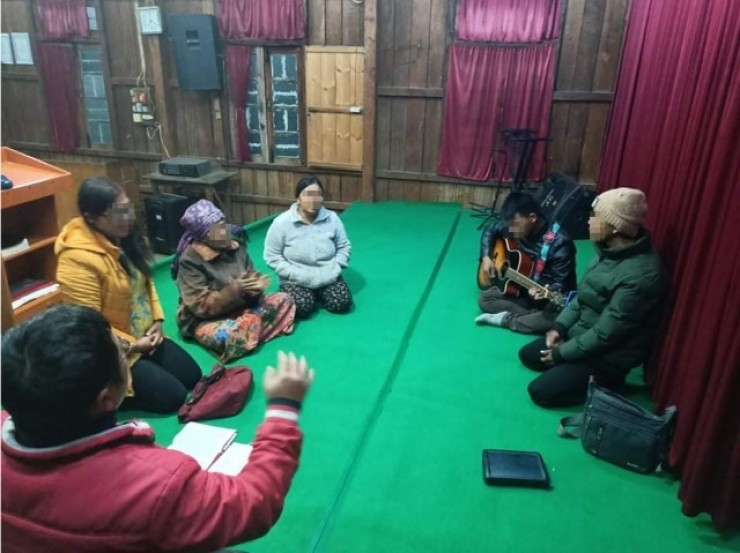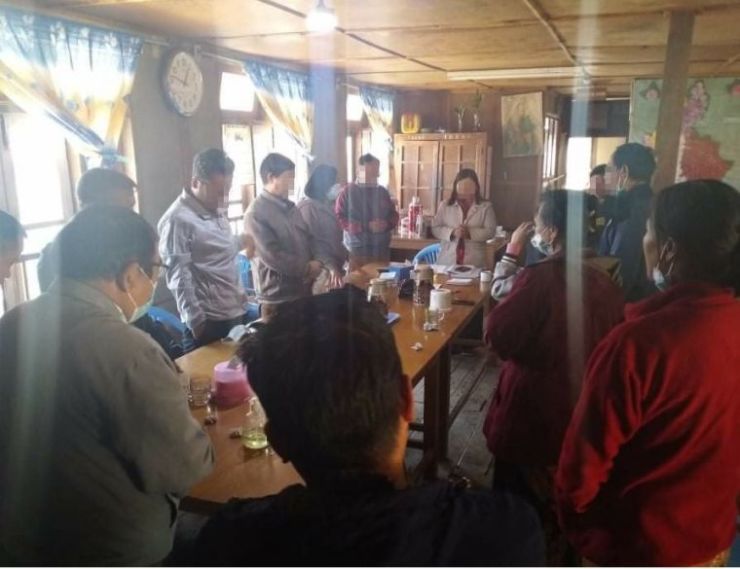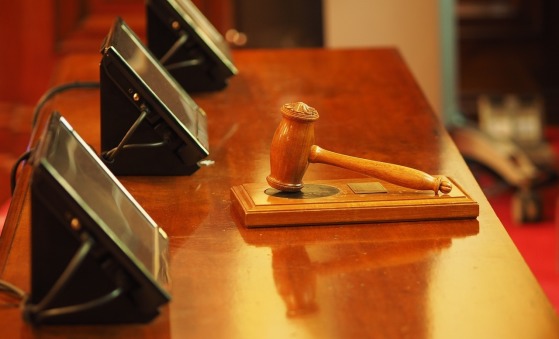
The church in Myanmar is asking Christians worldwide to pray for them following this week's military coup.
"It feels like our hope has been taken away," Pastor Zay from Rakhine State told Christian anti-persecution charity Open Doors.
"I couldn't sleep and I cried out to God that night. Our dreams, hopes, vision and freedom are taken away. Our lifetime has been full of grief, fear and trouble under the military regime. People are suffering because of the war. We are depressed by the military coup because we had hoped for a ceasefire."
The country was already in continuous turmoil caused by the longest civil war in the world, which began in 1948. It affects, among others, the predominantly Christian communities of Chin, Kachin and Karen. Christians are vulnerable to persecution by both insurgent groups and the army.
The tension was aggravated on 1 February when Myanmar's military detained pro-democracy leaders Aung San Suu Kyi and President Win Myint along with 22 high-ranking officials, citing fraud in last month's elections.
"It's like a new year for the military government," said Brother Daniel, an Open Doors' partner from Yangon. "The central government, the high-ranking officers have been changed and it's very sad."
In a move to further solidify their power, the Burmese Army installed ex-generals and military party members into 11 key positions in their new government, controlling finance and border departments, cultural affairs, and religion.
It's a turn of events that has left many deeply concerned, for the country's already persecuted church. The coup means that Myanmar's Army has taken full charge of the country - and it's an army firmly committed to Buddhist nationalism, with the Buddhist army, for many decades now, attacking villages in Christian areas and, occasionally, churches.
According to Julia Bicknell, who analyses the Open Doors' World Watch List, the Army dislikes Christians and does not see them as legitimate Burmese citizens.
"There has been a low-level but continuing campaign against Myanmar's ethnic and religious minorities in which Christians have been badly targeted," she says.
"Now the army is in power completely, without all the structures of the parliament, debate and discussion. It means we don't know what is going to happen to these minorities."
Internally displaced Christians
Open Doors' local partner Daisy expressed concerns for the 4,000 Internally displaced Christians fleeing in the jungles of Karen State, who have now been further trapped by the political developments.
"Among the displaced are more than 500 Christians including missionaries trapped in Kyaukkyi, Bago region," she said.
"The trapped Christians cannot move forward nor go back to their homes. They need food, medicine and clothes, but access and communication are very difficult."
All communication channels have been badly affected by the coup, including the broadcast media, telephone lines and the internet.
Open Doors' partner Min Naing said he was concerned about the Christians living in conflict areas and internally displaced people's camps.
"They are suffering because of the civil war, they lost their jobs because of the war and the pandemic," he said.
"The Christians were hoping for a ceasefire between the military and the insurgent group, but the future is uncertain, and we are now in an even more depressing situation."

Myanmar's Buddhist nationalism has led to the persecution which drove millions of Rohingyas, most of them Muslims but also some Christians, to flee to neighbouring Bangladesh, where many remain in Cox's Bazaar refugee camp.
Sad and scared
After phone lines and internet connections were restored in the country, Open Doors' partners have been able to get in touch with more local contacts. They said some of them were calm, others were panicking, some were scared.
"The army is stationed in our area and we are very sad. The churches are praying for this situation," Min, a Christian from Sagaing District said.
Aung Tun (not his real name), a Christian from Myanmar's mostly Christian Chin State, said that after the coup, many officers in civil uniforms have guarded his city.
Historically, Christians from the Chin State have experienced human rights abuses from Myanmar's Buddhist military, with crosses being desecrated and constant threats.
"Nothing has happened yet, but the churches are praying for this situation," he said.
Dilemma for Christians
Dissidents of the military junta have begun to make their voices heard, and it leaves many Christians with a moral dilemma. With the junta their "rulers", how far should they obey them?
The "Civil Disobedience Movement" is a Facebook group formed in dissent of Myanmar's new junta. Healthcare workers are being encouraged to stop work and join the protests in support.
Hospital nurse Mary (not her real name) shared her dilemma with Open Doors' partners.
"I'm having a hard time deciding if I should join the civil disobedience movement or obey the hospital's rules and continue working," she says.
"My colleagues have joined the movement and are asking me to join too at this critical time, and I feel the pressure from both sides."
Open Doors' local partner Daisy said: "There are many Christians like Mary. They're under pressure by friends and colleagues to join the protests, but on the other hand, there is an order from the government to remain in their post and continue working."
Not forgotten
Christians fear that the expected military dictatorship will further aggravate the existing intolerance against them.
"Christians in Myanmar are quite a large population of 4.4 million people, but they are one of those forgotten communities, almost frozen in this low-level civil war running for years," says Julia.
"Now it's the time to tell the Christians there that the world has not abandoned them!"




